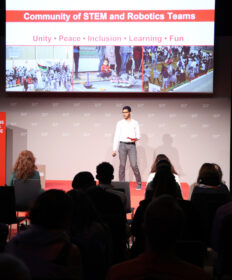Impact of Radicalisation on Women in Pakistan and Afghanistan The research has been conducted in Collaboration by Aware Girls and Equality for Peace and Democracy (EPD), Afghanistan.
This study charts and assesses impact of radicalization and violent extremism on women, in Pakistan and Afghanistan; and strategies women use to cope with, and counter, radicalization. Both countries are faced with endemic radicalization and violent extremism that directly or indirectly affects individuals, institutions, communities and infrastructure. Adverse effects range from physical and mental illnesses to destruction of roads, buildings, businesses; decline in literacy, productivity and tourism; prevalence of distrust, intolerance, hostility, aggression, disregard for law, crimes and disproportionate use of violence by Law Enforcement Agencies (robberies, kidnapping, imprisonment, killing, maiming etc.); intensification of religious, ethnic and sectarian divides; and reinforcement of patriarchy. Radicalization and violent extremism in both countries primarily hit against women’s rights. Women not only suffer direct physical and sexual violence in the form of flogging, stoning and beating to death, forced marriage and rape etc., but also bear most of the brunt of loss of livelihood and displacement; disappearances, disabilities and killing of family members. This study documents both direct and indirect adverse effects of radicalization and violent extremism on women, in Pakistan and Afghanistan.
This study discusses meaning, forms and manifestations of radicalization and violent extremism to women in conflict ridden areas of Pakistan and Afghanistan. Women in Pakistan distinguish two categories of violent extremism: one inflicted by militants that primarily manifests in explosions, target killing, extortions, destruction of infrastructure, regulation of dress code and behavior, restrictions on mobility and indoctrination of youth and children; while the other perpetrated by the military during operations against the militants, especially in Swat and FATA, exhibited in indiscriminate and disproportionate use of violence, killings and disappearances. In Afghanistan, this study focuses on violence perpetrated by and the effects of Anti Governmental Groups (AGGs) in Afghanistan which manifests itself mainly in sexual violence, disability, displacement, forceful recruitment to militant organizations and/or killing of a family member, and the presence of a former fighter in the family. It also brings forward women’s responses to varied forms of these acts of violence, regulations and restrictions. Their responses range from passive submission and internalization- considering extreme religious and political ideals and consequent violent, oppressive and discriminatory practices legitimate, sanctioned by religion and/or culture; to rejection and condemnation of radicalization and violent extremism.
You can read the study here: Impact of Radicalisation on Women in Pakistan and Afghanistan


